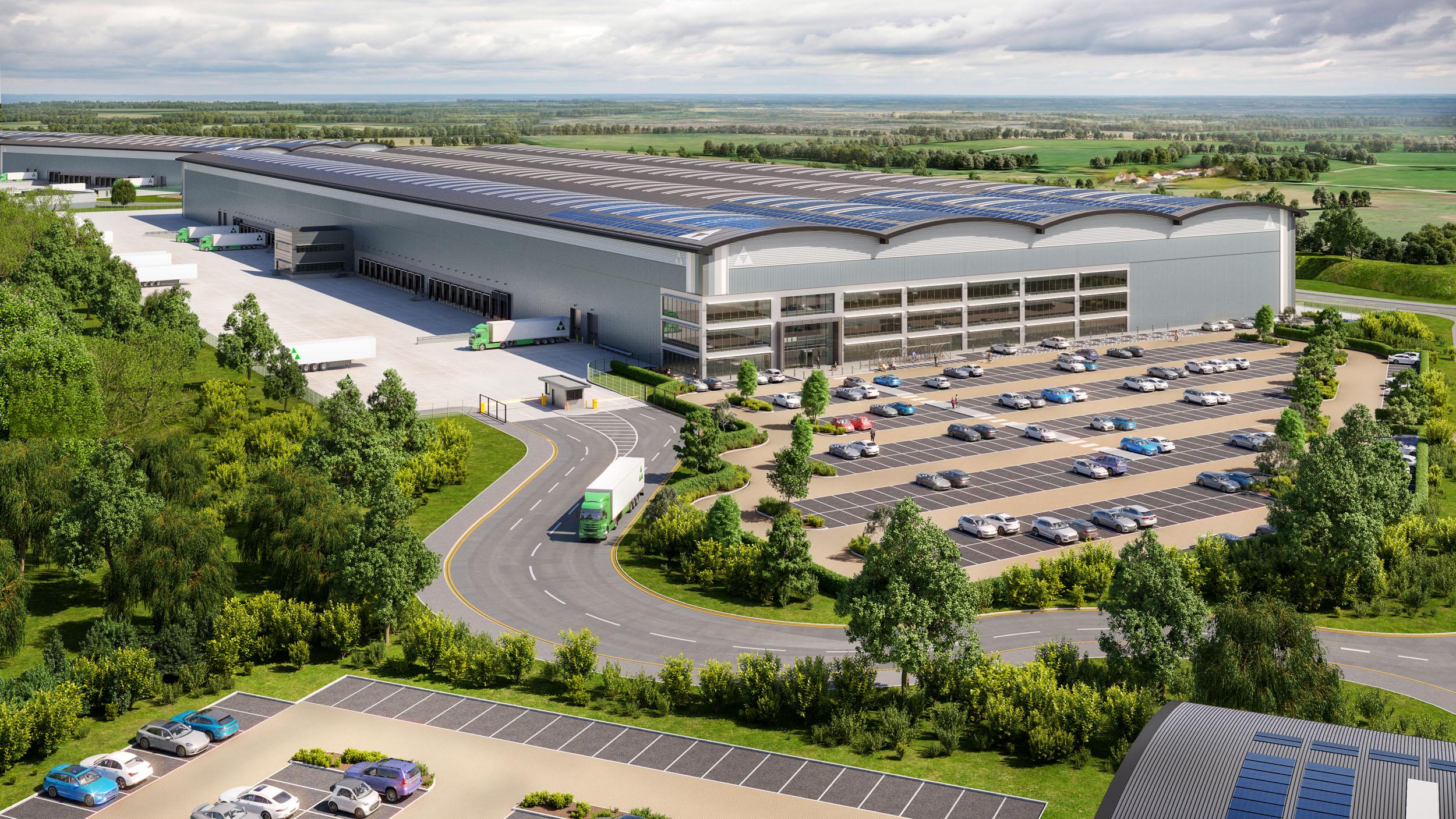Siemens Healthineers has announced a new facility in North Oxfordshire that will design and manufacture superconducting magnets used in healthcare facilities globally for MRI patient scans.
With an investment of £250 million ($314 million), the site will be home to novel technology that minimises the use of helium, making scanners lighter, easier to install and more sustainable.
It will be the UK’s first major production site for the new so-called DryCool technology from the MRI expert, which reduces the amount of helium required in an MRI scanner from 1,500 litres to under a single litre.
Construction has begun on the 56,000 sqm site, which will support more than 1,300 skilled jobs and will be "operationally carbon-neutral".
This "operationally carbon-neutral" status has been planned with support from developer Tritax Symmetry. This is a UK-based business dedicated to providing best-in-class greener logistics buildings.

- A render of the newly announced facility -
What does this mean for facilities?
Building Better Healthcare reached out to Siemens to understand how this could benefit healthcare infrastructure. Ghada Trotabas, Managing Director of Siemens Healthineers Great Britain & Ireland, said: “The newly announced £250m Oxfordshire facility will further develop our groundbreaking DryCool superconducting magnet MRI technology, which requires less than one litre of helium for cooling and no quench pipe."
Such systems used to require several hundred litres of helium and a costly quench pipe, so this innovation has large implications for the healthcare sector.
Trotabas explained that this means MRI machines can now be installed in places where they did not go before, improving access to quality medical imaging.
"This new generation of scanners will reduce the requirement for rooms to be opened or converted, bringing both cost and space efficiencies," Trotabas added.
DryCool superconducting magnet MRI technology, which requires less than one litre of helium for cooling and no quench pipe
The new tech's reduced helium needs are an innovation that Siemens has been focusing on for years now in the face of helium shortages.
The 1.5 Tesla system Magnetom Flow from Siemens Healthineers is already the second MRI scanner from the company that is equipped with Dry Cool technology. This means it requires only 0.7 litres of liquid helium for magnet cooling over the lifetime of the device.
The new factory will also include a research and development hub responsible for new technologies such as designing and manufacturing some of the world’s smallest and most lightweight whole-body scanners.
Visiting Siemens Healthineers, UK Prime Minister Rishi Sunak said: “As well as the incredible local benefits this will bring, this cutting-edge facility also presents an opportunity to enhance patient care globally, which means British innovation is saving lives around the world.”
This new generation of scanners will reduce the requirement for rooms to be opened or converted
This new site is one of Siemens Healthineers six current and planned manufacturing sites in the UK.
CEO of Siemens Healthineers, Bernd Montag, said: “This factory will be the global centre for our innovative low-helium magnet technology, meaning we consume far less of a scarce natural resource and enable access to MRIs for many more patients.”
Image: Prime Minister Rishi Sunak, Chancellor of the Exchequer Jeremy Hunt and Bernd Montag, CEO Siemens Healthineers. Image credit: Simon Dawson / 10 Downing Street
